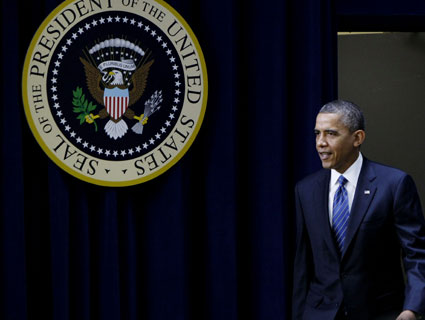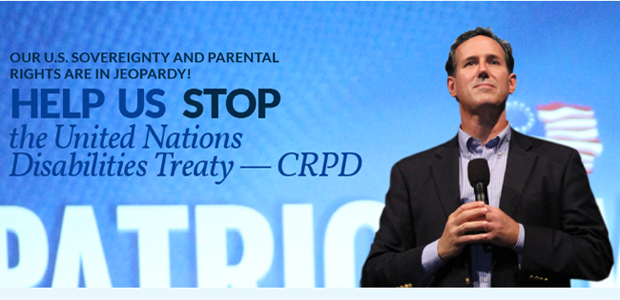Today, Republicans blocked ratification of the United Nations Convention on the Rights of Persons with Disabilities, a treaty negotiated by George W. Bush that basically codifies U.S. law as a model for the rest of the world. “It’s a treaty to change the world to be more like America,” John Kerry pleaded during the Senate’s debate, but that cut no ice with its detractors. Dan Drezner comments:
I’ve blogged on occasion about the development of a sovereigntist lobby that reflexively opposes all treaties because they erode U.S. sovereignty. For these people, any infringement on American sovereignty is a death blow to freedom, regardless of the benefits from joining.
Well, yeah….except I’m not so sure about the idea that this is something that’s developed recently. Movement conservatives have been paranoid about treaties at least since FDR’s treachery capitulation treason agreement with Stalin at Yalta, and for all I know, maybe even long before that. Hell, the Bricker Amendment, which would have dramatically restricted the ability of presidents to negotiate treaties at all, only failed by one vote in 1954, back when memories of Yalta were fresh. Just for laughs, let’s compare and contrast 1954 with 2012. Here is Senator Walter George on the Bricker Amendment:
I do not want a president of the U.S. to conclude an executive agreement which will make it unlawful for me to kill a cat in the back alley of my lot at night, and I do not want the President of the U.S. to make a treaty with India which would preclude me from butchering a cow in my own pasture.
Does that sound eerily, tea party-ishly familiar? It should. Here is Senator Jim Inhofe on UNCRPD:
Unelected bureaucratic bodies would implement the treaty and pass so-called recommendations that would be forced upon the United Nations and the U.S….This would especially affect those parents who home-school their children….The unelected foreign bureaucrats, not parents, would decide what is in the best interests of the disabled child, even in the home.
Movement conservatives tend to tolerate trade treaties, but that’s about it. They went ballistic over the Panama Canal treaty. They screamed blue murder over the Law of the Sea treaty. They opposed establishment of the International Criminal Court. They’ve fought pretty much every arms control treaty ever. They don’t like treaties, they’ve never liked treaties, and if there’s nothing obviously wrong with one they’ll invent a bunch of bizarre conspiracy theories in order to get themselves worked into a frenzy about it. Dan says opposition to UNCRPD is “dumber than a bag of hammers,” and it is. But that’s par for the course. The more things change, the more they stay the same.

















